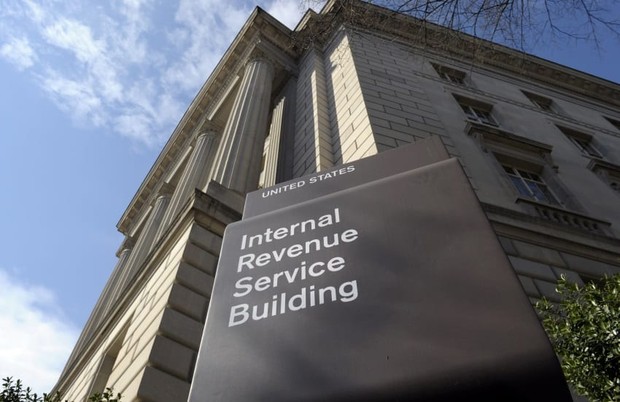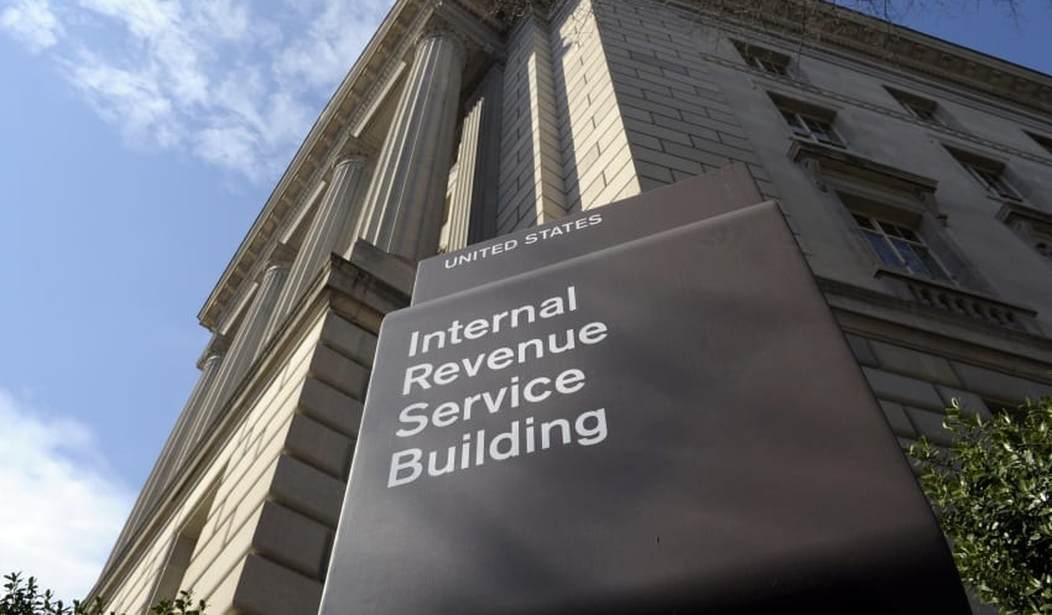
FILE – In this photo March 22, 2013 file photo, the exterior of the Internal Revenue Service (IRS) building in Washington. The IRS provided poor customer service during this year’s tax filing season as taxpayers struggled with a rise in identity theft and complications related to President Barack Obama’s health law, a government watchdog said Wednesday. A new report by the National Taxpayer Advocate says the IRS has been hampered by budget cuts. (AP Photo/Susan Walsh, File)
World attention remains focused on President Trump’s latest tweet or the latest “bombshell” predicting an all out war between him and his Attorney General. Meanwhile, The President has continued his steady, long term task of dismantling the the Deep State and reducing its deleterious affects on average Americans—you know, those folks who grow the food and extract oil from the clutches of the Earth’s crust, thousands of feet deep. Some of those folks in “flyover country” are risking everything to help.
One of the most egregious federal tools for control of the populace is the Currency and Foreign Reporting Act of 1970. This statute requires financial institutions to keep records of cash transactions of more than $10,000.00 in one day and report suspicious transactions to the federal government. Failure to do so is a Federal Felony.
(Read: Failure to report more than $10,000 cash: felony under federal law)
In 1986 Congress passed a law that made it illegal for individuals to divide up deposits so as to stay below the $10,000.00 per day reporting threshold.
(Read: Structuring Cash Transactions Under $10,000 is Criminal!)
This is an affront to personal liberty. I can find no enumerated power in the U.S. Constitution aside from Jury Duty that allows our Federal government to restrict the behavior of its citizens merely to assist it in identifying and prosecuting criminal activity. This law has had some real consequences, mostly because of another unconstitutional idea foisted upon law abiding citizens: Civil Asset Forfeiture.
Civil Asset Forfeiture is a legal tool that allows law enforcement officials to seize property (including cash) that they believe may been involved in criminal activity. Until recently, law enforcement could do this even without proving the owner had been involved in a crime. Their justification? The property was the one being accused! Really? (Yes, really.)
The original intent of this “well-meaning” legislation was to prevent drug dealers and other organized crime elements from using their ill-gotten gains to finance their legal defense. But like many government attempts to “help,” it has resulted in great harm to innocent folks just trying to make an honest living.
Under Civil Asset forfeiture law enforcement agencies can seize your car, your house, money or other property. Then you must spend your time and your money to prove that you and your property were not involved in a criminal enterprise. This totally upends our concept of innocent until proven guilty. Local agencies who fund a not insignificant part of their activities from asset forfeiture have broken the code. They like to seize assets that are high enough dollar value to make it worthwhile as a budget enhancer, but not so significant that a victim will spend time and money trying to get them back.
Any true American would find this practice repugnant. Unable to fight back, most victims merely acquiesce. Enter Maryland Farmer Randy Sowers. From an article in AGWeb:
Strapped with pistols and carrying government IDs, two Treasury agents walked onto a Maryland farm on a cold winter morning in 2012, and asked for the owner – Randy Sowers. It was a blur of badges and questions, but Sowers’ four-year legal nightmare was only just beginning. “My story could belong to any farmer or business owner,” Sowers says. “People have almost no idea what the feds will do when they want to hurt you. What kind of power-hungry bureaucrats do we have when guilt or innocence plays no role in the system?”
Sowers explained (emphasis mine):
“They seized almost $70,000 of our money, had us scared and thinking we were going to prison, and maybe losing all we’d worked for,” Sowers explains. “Roll over and shut up—that’s the game I was supposed to play.”
Sowers, along with untold other American citizens were at the mercy of the Internal Revenue Service and the Department of Justice. In a “coincidence” showing how deep the rot is in our government, this case government-sponsored victimization of a citizen was quarterbacked by Maryland U.S. Attorney, Rod Rosenstein, who went on to serve as the Deputy Attorney General before resigning in lieu of being fired.
Sowers, like other patriots backed into a corner by a government out of control, refused to buckle under to this state-sponsored robbery. He and several other victims brought their pleas to Congress and solicited help from the Institute for Justice.
Ultimately, Sowers and his compatriots got some long-awaited RESPECT:
In July 2019, seven years after Treasury agents first visited South Mountain Creamery, President Trump signed the Taxpayer First Act (after unanimous congressional approval)—a significant package of IRS reform legislation, which included the Clyde-Hirsch-Sowers RESPECT Act (eponymously named for Andrew Clyde, Jeff Hirsch and Randy Sowers). The RESPECT Act officially restricts forfeiture to currency structuring instances involving illegal activity.
I’m by no means claiming that this was one of The President’s signature initiatives. The major credit goes to stalwart folks like Randy Sowers, who refuse to buckle under to a tyrannical government. This is also what Donald Trump is all about. He puts America and Americans first. It’s about time somebody did. Thank you, Mr. Sowers, for helping The President drain the swamp.













Join the conversation as a VIP Member